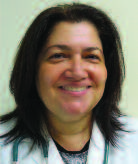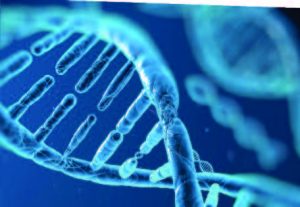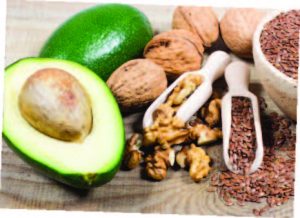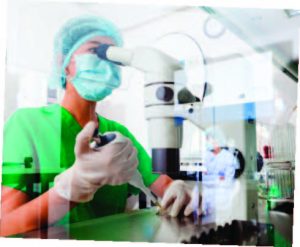 Fussy Babies
Fussy Babies
A recent study out of the University of Buffalo suggests that babies who are fussier and take longer to calm down may be at higher risk for future obesity. Infants were taught to push a button for a reward in the study. Researchers found a correlation between babies who were willing to work for a non-food reward (such as bubbles) and the ability to recover quickly from crying or distress. Likewise, there was a correlation between babies who worked for a food reward and who took longer to stop crying.
Other studies, published by the Federation of American Societies for Experimental Biology (FASEB), have explored how feeding can be used as a strategy to calm or pacify infants. Association with increased carbohydrate intake and practice to calm down infants was found. Analysis indicated that fussier babies were twice as likely to be fed solids and non-milk liquids at 3 month of age. “Those infants were also more likely to be given cereal in the bottle,” points out

Yelena Samofalov, MD Trinitas Pediatric Health Center 908.994.5750
Yelena Samofalov, MD of the Trinitas Pediatric Center, “which is not consistent with current feeding recommendations. These feeding practices also can lead to infants being overweight. We suggest to our patients to follow your doctor’s advice regarding feeding your infant…and not to use food as a pacifier for a fussy baby.”
Parkinson’s Breakthrough
Parkinson’s researchers have long been searching for a way to get out in front of the disease before its symptoms develop. Scientists at University College in London may have made a breakthrough in this effort with a non-invasive eye test. They observed that rats exhibited changes in the back of the eye before visible symptoms occurred and before brain cells had been significantly damaged. Parkinson’s is the second-most common neurodegenerative disease worldwide and currently there are no blood tests or brain scans that can render a definitive early diagnosis. Identifying an early biomarker would be a game-changer.
Stem-Cell Scams?
Stem cell therapies hold profound promise for a wide range of diseases, with public awareness at an all-time high. Yet only one stem-cell product has actually been approved for sale by the FDA: Hemacord, which is used for blood disorders. None of the other 300-plus therapies advertised around the country have been deemed safe or effective. They include treatments for Alzheimer’s and Parkinson’s disease, arthritis, multiple sclerosis and even autism. Many of the companies offering these therapies do not even have a stem-cell expert on staff.
 Nice Pick
Nice Pick
So it was under our noses all along? Well, technically, in our noses. German scientists announced the discovery of bacteria in the human nose that produces an antibiotic that holds great promise in the fight against super bugs. The human body isn’t typically fertile ground for antibiotics—most come from the soil. However Lugdunin, which is made naturally by a microbe that lives in nose hair bedding, works in ways that researchers don’t yet fully understand. “Although preliminary, this report is very exciting,” says

William Farrer, MD
Chief of Infectious Diseases
Trinitas Regional Medical Center
908.994.5455
William Farrer, MD, the Academic Chief of Infectious Disease at Trinitas. “We are running out of antibiotics as bacteria mutate to become ‘superbugs,’ resistant to most if not all antibiotics. Research on the human microbiome and its role in health and disease has exploded in recent years. This discovery may lead researchers to find other potential antibiotics made by the bugs living in and on us.”
 Bagpipe Lung: It’s a Thing
Bagpipe Lung: It’s a Thing
It may be time to reach out to the trumpeter in your life. Doctors in England recently diagnosed a fatal case of what they are calling “bagpipe lung”—a deadly reaction to mold and fungus that can live in the moist interior of many wind instruments. In this case, the 61-year-old victim was a bagpipe player, but scientists warn that the same conditions could exist in saxophones, trumpets and other instruments. They suggest that owners do regular cleanings to prevent the build-up of harmful pathogens, and that musicians who develop a lingering cough get themselves checked out in order to prevent permanent lung damage.
 Cancer Study to Assess Gene-Editing Technology
Cancer Study to Assess Gene-Editing Technology
You may be hearing about something called CRISPR–Cas9 over the next couple of years. And that would be a good thing. It’s a promising new therapy being tested against cancer at the Universities of Pennsylvania, Texas and California-San Francisco with the blessing of the National Institutes of Health. CRISPR–Cas9 involves a gene-editing technology used to alter a patient’s T cells so that they do a better job recognizing and attacking tumors. The FDA hasn’t approved CRISPR–Cas9, so the initial goal of the study is to determine whether it’s safe. The study is being funded by tech billionaire Sean Parker, and will be tested on a handful of patients who have melanoma, sarcoma and myeloma.
 Benefits of Unsaturated Fats
Benefits of Unsaturated Fats
Is the key to staying slim eating more fat? University of Minnesota researchers analyzed 56 different studies on diet and chronic disease and noticed something interesting: People who consume unsaturated fats (such as avocados, nuts and fatty fish) along with fruits, veggies and whole grains are 29% less likely to develop heart disease or suffer strokes, 30% less likely to develop type 2 diabetes, and at a 57% reduction in the risk for breast cancer. Carbs and processed sugar are the real bad guys, the study suggests, adding that when it comes to monounsaturated fats like olive oil, for most people there is no such thing as “too much.”







